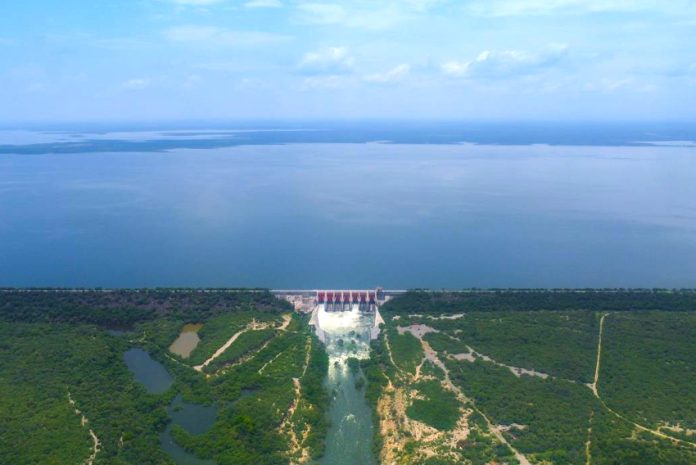Water has been in the news a lot lately — from the recent hurricanes hitting Florida and the Carolinas in the United States, to European and Asian countries experiencing significant flooding, to much of Brazil suffering from what is being called the worst drought in hundreds of years — water is top of the mind around the world.
Consider the Panama Canal, which for over 100 years has been a reliable cog in the global supply chain. It is now under threat due to a lack of water. In Mexico, Acapulco has been devastated two years in a row by powerful hurricanes, and both Baja California and the Yucatán Peninsula have also been hit by severe storms and flooding.
It’s hard to believe that just a few months ago, 76% of Mexico was suffering from drought, with lakes and reservoirs nationwide drying up! As of late September, only 22% of the country is facing drought conditions, following an abundant rainy season.
Perhaps the ancient Mexica were right to worship Tláloc, the god of rain and water. Tláloc was not only highly revered but also feared, as he could send rain, cause droughts, create hurricanes and send damaging lightning.
Throughout Mexico, people have been increasingly voicing concerns related to water. From heightened awareness about devastating storms to fears about how economic growth could impact water supplies and concerns about the water usage of exporting companies, the topic of water is a major concern. I hear expats living in Mexico who are more concerned about water scarcity than they are about security.
This brings me to an exciting announcement: Mexico News Daily is starting a new series focused on water in Mexico. Over the coming weeks and months, we will profile companies, organizations and individuals trying to solve the country’s water problems. We will highlight challenges and success stories across the spectrum of water usage: residential, industrial and agricultural.
Our series will certainly create some anxiety regarding the challenges facing the country, but will also inspire you.
Before purchasing MND, I worked in the water industry for over 20 years and saw first-hand the problems communities and businesses faced, as well as the many solutions being developed and deployed across equipment, services and chemical innovations.
Through this series, our objective is to position MND as your authority to learn more about this vitally important issue for Mexico’s future.
Perhaps most importantly, we will provide reasons for optimism when you see the talented people and organizations dedicating significant human and financial resources to solving these challenges. As I have highlighted before, economic growth and responsible water usage can coexist.
If Mexico is to fully realize its potential, grow its economy and improve the lives of its citizens, water issues must be addressed. For example, data centers have historically been associated with significant water usage. Does that mean that Mexico cannot responsibly allow construction of data centers in the country?
As this example from Microsoft in Querétaro highlights, human ingenuity should not be underestimated, and companies can actually be part of the solution to reducing water usage. Businesses are increasingly using artificial intelligence and new technologies to help solve important water problems across the country.
However, the water challenges facing Mexico should not be underestimated. Many parts of the country face water scarcity, especially in the booming central and northern regions where most nearshoring investment is concentrated.
Additionally, Mexico has serious problems regarding water quality. Unlike many countries, especially the United States and Canada, Mexico has very little surface water (water in lakes and rivers) and much of what is available is polluted.
As a result, most water is extracted from underground wells. The deeper the well, the more energy is consumed to pump it to ground level, and the more minerals and heavy metals are naturally present in the water. Often, this water requires significant pre-treatment to make it safe for human use or industrial purposes.
Water is the basis of life and is increasingly recognized as a resource requiring much more protection and care.
Alarmist news coverage of an impending “Day Zero” when cities run out of water provokes fear and anxiety, without adding value. Our series aims to inform, educate and hopefully inspire you to help be part of the solution in your own small way.
If you know anyone doing great work in Mexico related to water, please email me here at [email protected] and perhaps we can highlight their efforts in this series.
Thank you for reading MND.
Travis Bembenek is the CEO of Mexico News Daily and has been living, working or playing in Mexico for over 27 years.
